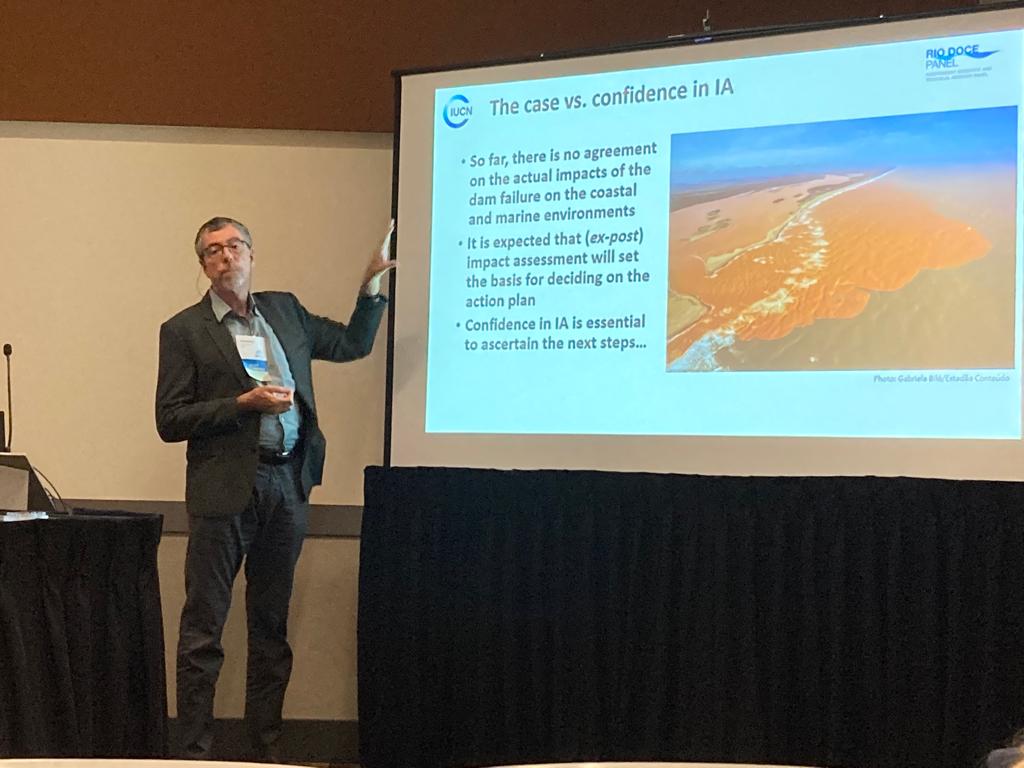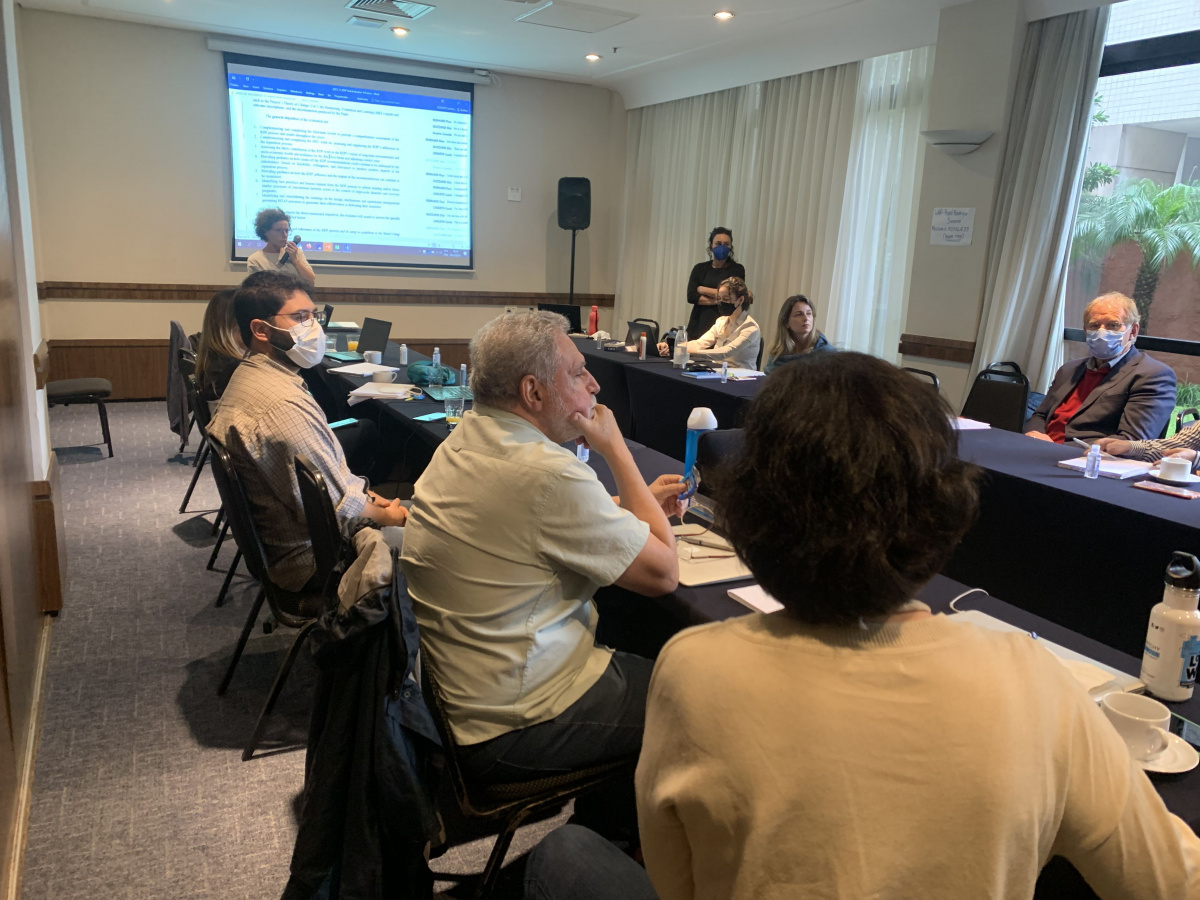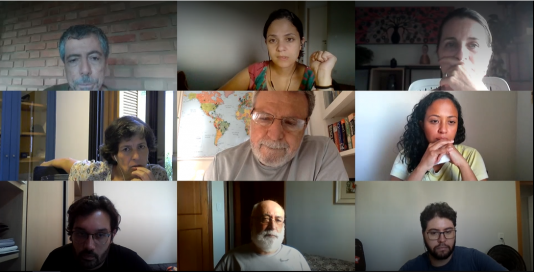Harnessing Independent Scientific Advice to Reconcile Conservation and Economic Development Goals
*Article by Gerard Bos and Steve Edwards

Photo: Prt
The IUCN World Conservation Congress held in Marseille brought attention to many important and urgent issues that nature, governments, and companies face today. During the Congress (3-11 September 2021), amongst the many participants – online or in-person – a particular group got together to talk about one approach in their work searching for a better world.
Independent Scientific and Technical Advisory Panels (ISTAPs) are an IUCN tool designed to achieve better and faster results in solving a critical issue. These IUCN-led Panels have been guiding companies for over a decade already.
The first example highlighted was the Western Gray Whales Advisory Panel, which has been active, helped advise one of the oil and gas companies operating near a feeding and reproductive area of the endangered western gray whales.
In Nigeria, following oil spills that severely affected the biodiversity of the Niger Delta River, IUCN and Shell agreed to establish the Niger Delta Panel in 2012 to guide the remediation process. After its end in 2016, the Panel compiled the recommendations and analysis into lessons that are still in place and guiding best practices for the company and, in some cases, the industry worldwide.
In Brazil, the collapse of the Fundão mining tailings dam in Mariana, Brazil, in 2015, motivated the creation of the Rio Doce Panel to support the restoration work in the region affected by the breakage. The Renova Foundation leads this work; an institution created as part of the government’s response. It is funded by Samarco, the mining company responsible for the tailing facility, and its shareholders, Vale and BHP Billiton. The Rio Doce Panel was then established in 2017 and has given technical and scientific advice ever since.
Not long after that, another tailings facility ruptured in Brazil, in the region of Brumadinho, Minas Gerais, raising global attention to the risks of tailing dams and the necessity for clear guidelines to guarantee more safety for the population and the surrounded environment. The Global Tailings Review, an initiative of the International Council for Mining and Metals (ICMM), the United Nations Environment Programme (UNEP) and the Principles for Responsible Investment (PRI), developed a Global Standard to define practices to make mining tailings facilities safer for people and nature.
So, what do all these Panels have in common? What have they learned in all these years of operation? And what do they recommend to others who might be interested in this approach in the foreseeable future?
We asked experts who have been directly engaged with these processes to share their experience: Dr Aminu-Kano Muhtari, Mr Andre De Freitas, Ms Antonia Mihaylova, Mr Gertjan Roseboom, Mr Patrick Ramage, Dr Randall Reeves and Ms Yolanda Kakabadse.
During the session, they noted the Panels created better opportunities to understand the issues, provide impartial inputs, and find creative solutions in a multi-stakeholder and multidisciplinary environment.
Collaboration, transparency and engagement were highlighted as critical success factors. At the same time, mistrust between companies and communities, lack of standard guidelines, and a mismatch in languages and science were some of the main issues to tackle during the process.
The role of IUCN in the Panel process is to guarantee the principles of every ISTAP – independence, transparency, accountability, and engagement. These Panels must have a clear sense of purpose, deliver high-quality materials, work with the affected parties during the Panel's lifetime, be scientifically rigorous, and engage openly with all relevant stakeholders.
Furthermore, Panels can provide strategic expertise to manage complex and controversial issues and build trust. The Panels also can adapt solutions to specific contexts through science-based evidence, thus bringing a plethora of options to the table and allowing for the best possible outcome.
In line with the IUCN's mission to "ensure that any use of natural resources is equitable and ecologically sustainable," we believe that the ISTAPs can proactively help avoid disasters from happening, which reflects some of the key messages echoed during the Congress.
For the IUCN Congress participants, a recording of the entire session Harnessing Independent Scientific Advice to Reconcile Conservation and Economic Development Goals held during the IUCN World Conservation Congress in September 2021 is available.
*Gerard Bos is Director, and Steve Edwards is a Senior Programme Manager of IUCN’s Business and Biodiversity Programme.



